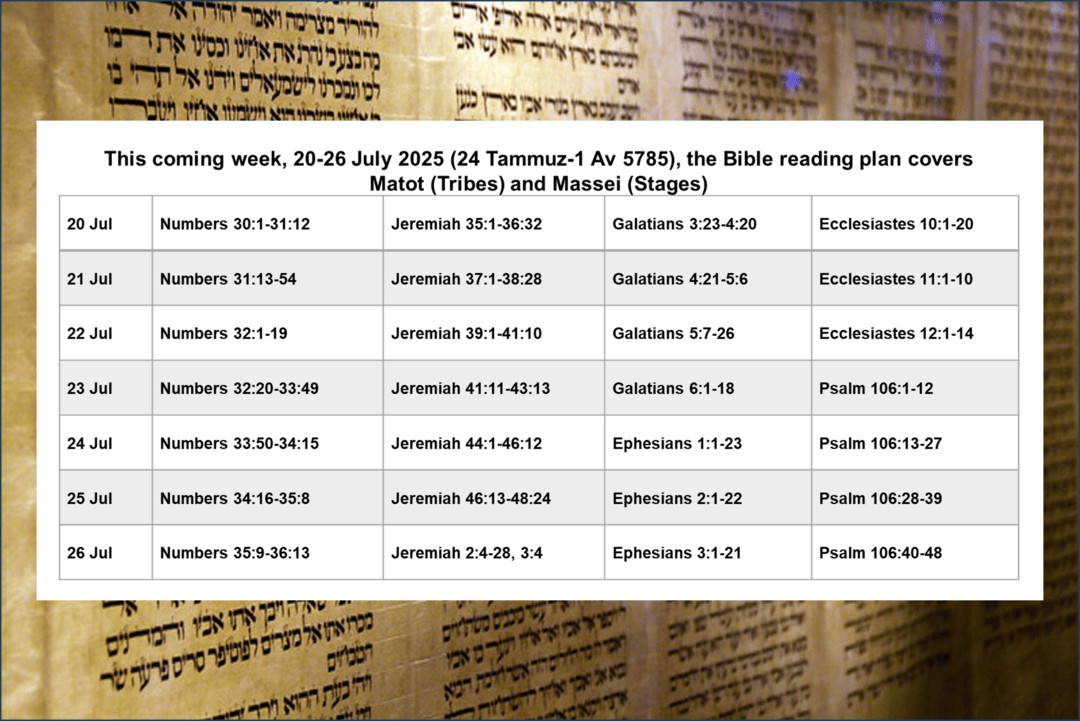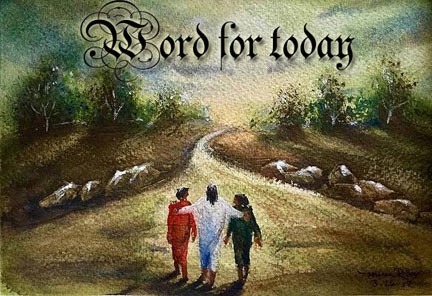Watch
Events
Articles
Market
More
This coming week, 20-26 July 2025 (24 Tammuz-1 Av 5785), the Bible reading plan covers Mattot (Tribes) & Massei (Stages).
https://thebarkingfox.com/2025..../07/18/weekly-bible-




This coming week, 20-26 July 2025 (24 Tammuz-1 Av 5785), the Bible reading plan covers Mattot (Tribes) & Massei (Stages).
https://thebarkingfox.com/2025..../07/18/weekly-bible-




God is love. God loves you. If you love me, keep my commandments....
We think we know what these statements mean, but do we?
https://www.americantorah.com/....2018/06/19/gods-lovi



I think you will like this extended version of my new song :)
❤️💜💙 Papa's Always Here 💙💜❤️
by Dr Garth Grenache
and his Lighter Orchestra
2025:7:18
[Verse]
Don't give up.
Do not fear.
You're never alone.
Papa’s always here.
[Verse]
Don't give up.
Do not fear.
You're never alone.
Papa’s always here.
[Chorus]
Do My commands.
Walk My Way,
Under My yoke,
Every day.
I understand
What you can bear.
Light is My burden.
Never despair.



The desire of the righteous is only good, but the hope of the wicked only wrath.
#proverbs 11:23
The righteous desire the will of God, which is, by definition, good. Their desires in this context aren't necessarily directly related to their personal desires, but to the needs of the Kingdom. "All things work together for the good of those who trust God."
The wicked, on the other hand, follow their own evil inclinations and so come to ruin because their hopes are not aligned with God's ultimate will. There is no way they can win in the end.



071825 / 22nd day of the 4th month 5786
WORD FOR TODAY “do you know what HIS will is?”: Mat 7:21 "Not everyone who says to Me, 'Lord, Lord,' will enter the kingdom of heaven, but he who does the will of My Father who is in heaven will enter.
WISDOM FOR TODAY: Pro 27:12 A prudent man sees evil and hides himself, The naive proceed and pay the penalty.
www.BGMCTV.org




I have made a change to my Youtube channel that I hope will make it easier to find me. simply search for "Jerry Mitchell with Give God 90"
New episode, Respect Your Elders. Listen where you get your favorite podcasts, use the player on our homepage or here https://www.spreaker.com/show/....give-god-90-episode-
Or watch the video on Youtube.


